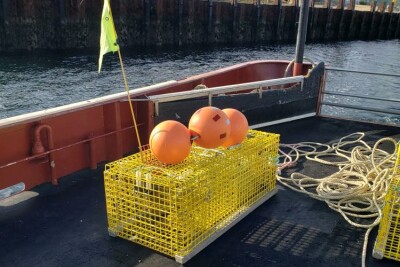HARPSWELL, Maine — When Port Clyde fisherman Gary Libby started fishing in 1978, a good day at sea meant heading home with 6,000 pounds of fish on board. Today, a 21-hour trip nets anywhere from 1,000 pounds to 1,500 pounds — and he’s fishing far, far fewer days each year.
Randy Cushman, also of Port Clyde, remembers his biggest trip ever, when he hauled in 11,000 pounds of codfish, back when Cushman was young and Port Clyde “was hoppin’.”
“We had the big fishing that you hear about,” Cushman said. “Real big. Too much. We stayed up for 48 hours straight. We only had 3 hot dogs to eat … that takes its toll on you, with two guys. You’re working. You’re busting your hump.”
Port Clyde, like other fishing towns up and down the Maine coast, has changed in the past few decades. Most significantly, with federal regulations and a depleted fishery, Maine’s groundfishing fleet has shrunk from 300 boats in the early 1990s to about 50 in 2013, according to Ben Martens, executive director of the Maine Coast Fishermen’s Association, a fishermen-led nonprofit that works to restore the fisheries and sustain Maine’s fishing communities.
But as valuable as the industry itself are stories such as Libby’s and Cushman’s. The Maine Coast Fishermen’s Association has preserved some of those fish tales through its Oral History Initiative, a multimedia presentation opening Wednesday at Harpswell Heritage Land Trust.
Read the full story at Bangor Daily News>>






